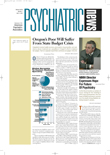When it comes to risk factors for Alzheimer’s disease, probably nothing has been more scientifically documented than the E4 variant of the fat-metabolizing enzyme APOE. A link between APOE-E4 and Alzheimer’s has been made in more than 100 laboratories throughout the world.
Whether the APOE-E4 variant bestows the same Alzheimer’s risk on people of various races, however, is more open to dispute. For instance, some studies have found that when blacks or whites have two copies of the variant, then their risk of Alzheimer’s increases fivefold. Several others, however, have found that when blacks or whites have only one copy of the variant, only whites are at increased risk. Now another investigation has come up with this same finding.
It was headed by Denis Evans, M.D., director of the Rush Institute for Healthy Aging at Rush-Presbyterian-St. Luke’s Medical Center in Chicago. The results were reported in the February Archives of Neurology.
In an accompanying editorial, Richard Mayeux, M.D., of Columbia University described the finding as “curious,” since such variability has not been noted in population studies involving other ethnic groups.
In the first part of the study, Evans and his coworkers identified some 4,000 persons 65 years of age or older living in three Chicago neighborhoods who were free of Alzheimer’s. The sample contained a comparable mix of blacks and whites. Four years later, Evans and his team randomly selected 835 persons from the same 4,000 for clinical evaluation. Of those, 373 were black, and 462 were white.
Evans and his coworkers evaluated these subjects to see whether they had developed Alzheimer’s since the study had started. They also tested them for the presence of the APOE-E4 variant. Forty-two percent of the black subjects had at least one copy of the variant, compared with 27 percent of the white subjects.
Evans and his coworkers then used the APOE-E4 variant information about each of the subjects as well as the information about who had developed Alzheimer’s disease to determine whether having one or more copies of the variant could be linked with Alzheimer’s. (Evans told Psychiatric News that they did not investigate whether having two copies of the variant instead of only one would have made a difference as far as risk was concerned since too few of the subjects had two copies.)
Having one or more copies of the variant increased the risk of Alzheimer’s in white subjects—about threefold, in fact—but not in the black subjects. “These results suggest that the effects of the APOE-E4 allele on the risk of Alzheimer’s incidence may differ strongly for black Americans and white Americans,” the scientists concluded.
If having one copy of the APOE-E4 variant puts white Americans, but not black Americans, at risk for Alzheimer’s, what is the explanation? One possibility is that some unknown environmental or genetic factor is distributed differently for whites and blacks and thus gives African Americans protection, the researchers speculated in their study report.
The study was financed by a grant from the National Institutes of Health.
Arch Neurol 2003 60 185
